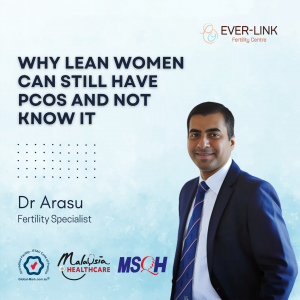
Polycystic Ovary Syndrome, better known as PCOS, is a common hormone condition that affects many women. Most people assume that PCOS only affects women who are overweight, but that’s simply not true. In fact, women with lean or average body types can have PCOS too. The problem? It’s often harder to spot. Let’s break down why that is and what signs to watch for.
Busting the Myth
Doctors once believed that extra weight was a key factor in PCOS. While being overweight can worsen PCOS symptoms, it’s not the cause. PCOS is all about hormone imbalance, and that can happen to anyone no matter their size.
Here’s what PCOS really involves:
- High levels of androgens, a type of hormone that can cause acne, hair thinning, or excess facial hair
- Irregular periods, or even no periods at all
- Ovaries that don’t release eggs regularly, which can lead to fertility challenges
Thin women might not get noticed because they don’t have the “typical” PCOS look. But the condition is working beneath the surface, and can still mess with your health in big ways.
Silent Signs in Lean Women
Since weight gain isn’t always present, here are other clues that might point to PCOS in thin women:
- Periods are irregular or missing
- Trouble getting pregnant
- Unexplained acne or oily skin
- Mood swings or low energy
- Hair thinning or unwanted facial/body hair
Some women just chalk it up to stress or genetics. But if these symptoms show up together, it’s worth talking to a doctor.
Why It’s Often Missed
PCOS in thin women can fly under the radar not because of neglect, but because the signs aren’t always obvious. Doctors rely on patterns and symptoms to make a diagnosis, but in lean body types, those signals may be faint or misleading.
Here’s why:
- Symptoms can be subtle: Mild acne or slightly irregular periods might not raise alarms at first.
- Hormone levels may seem “normal-ish”: Blood tests don’t always show dramatic changes, making it harder to pinpoint the issue.
- Lack of weight-related symptoms: Without weight gain, one of the more noticeable PCOS markers is missing.
- Other causes often considered first: Stress, thyroid issues, or lifestyle factors may seem more likely, causing delays in a PCOS diagnosis.
What You Can Do
If you suspect PCOS, size doesn’t matter. What matters is getting checked. A gynecologist or hormone specialist can run tests to confirm the diagnosis.
Treatment can include:
- Lifestyle changes, such as eating balanced meals and getting regular movement
- Medication to regulate periods and hormone levels
- Fertility help if you’re trying to conceive
Every woman’s body is different, so it’s about finding the approach that fits you.
Final Words
PCOS doesn’t play favorites it can affect women of all shapes and sizes. Thin women often go undiagnosed, simply because their symptoms are harder to spot or easy to dismiss. If your body’s sending signals, listen. Seeking help early can make a world of difference. And the more we bust these myths, the closer we get to healthier futures for all women.

